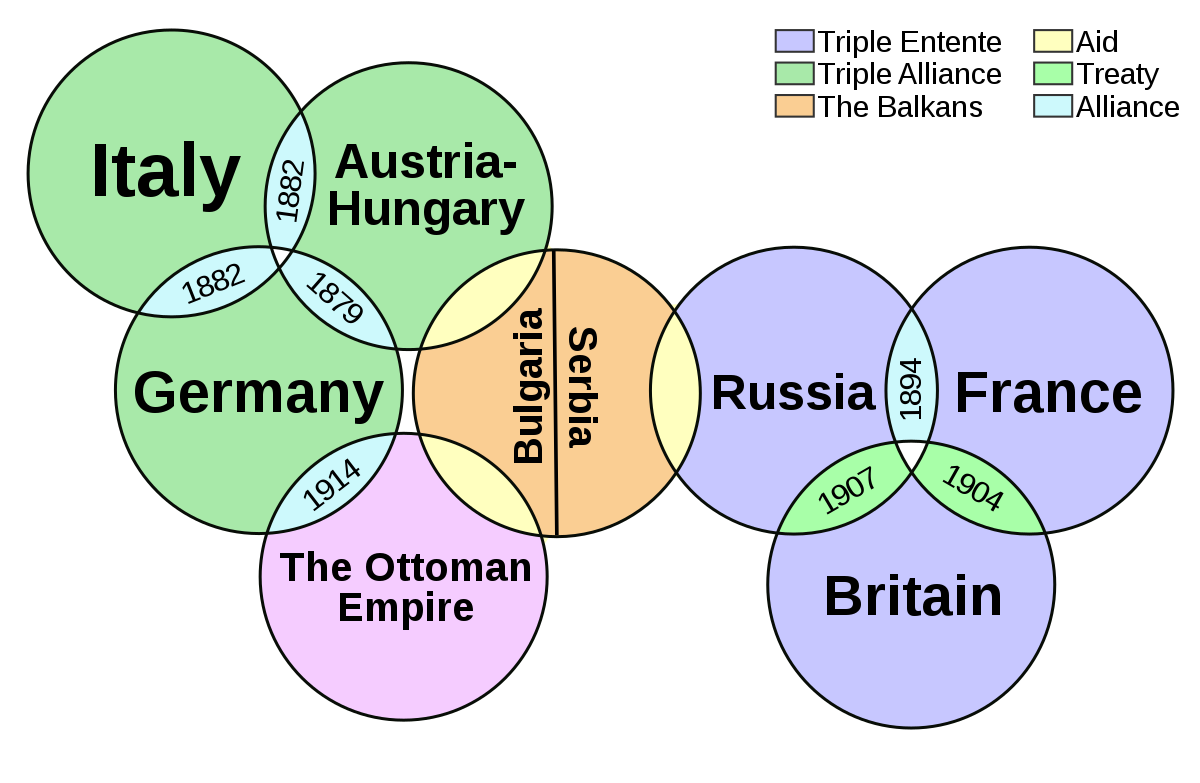One factor that made war more likely was the unification of Germany and of Italy. The creation of these two new major states altered the balance of power in the European state system; the efforts of statesmen during the next forty years to adjust the system ultimately proved unsuccessful.
The older established powers were unwilling to give up their own claims, and after 1850, with the principle of national sovereignty well established, smaller western European states were no longer open to annexation by the great powers.
Thus there was little territory available in Europe for making adjustments. In the late nineteenth century only the Balkan lands of the weakening Turkish Empire remained as possible territorial pickings for ambitious powers. Even there, the growth of national feeling in Romania, Serbia, Bulgaria, and Greece made formal annexation difficult.
Meantime, influenced by their rivalries in Europe and abroad, the great powers were choosing sides in a series of alliances and agreements. By the early years of the twentieth century two increasingly armed camps existed: the Triple Alliance (Germany, Austria-Hungary, and Italy) and the Triple Entente (France, Britain, and Russia). After 1900 almost any crisis might lead to war.

